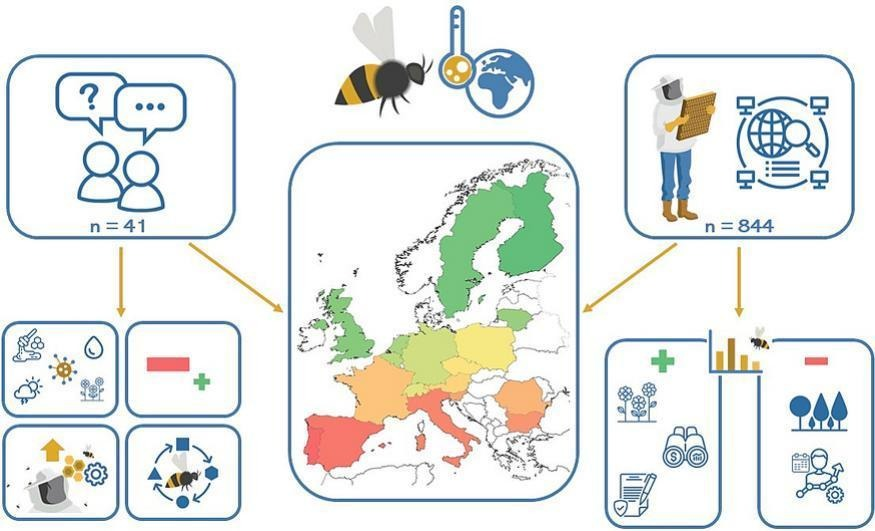Giving Beekeeping Guidance by cOmputatiOnal-assisted Decision making
European beekeeping facing climate change: New B-GOOD study identifies impacts, winners, and losers
The B-GOOD socio-economics research team from Ghent University (BE), Aarhus University (DK) and University of Coimbra (PT) has published their findings on European beekeeping facing climate change through the lens of stakeholders and beekeepers.
This study, published in the renowned scientific journal Science of the Total Environment, is the first to show how climate change is experienced in the European beekeeping sector and forces beekeepers to change their beekeeping management practices. Major experienced impacts from climate change concern changes in local weather conditions, food resource availability, the occurrence of natural disasters, disease infestation and honey yields, all of which have become less predictable.

Photo: Graphical abstract of the article
Despite the overall alarming picture, climate change is likely to create winners and losers. The former are mainly found in Northern European regions and among hobbyist beekeepers; the latter, in Southern European regions, forestry areas and among professional beekeepers. While honeybees have historically shown to be resilient as a species, the study demonstrates that a similar degree of resilience is now expected from beekeepers, which imposes a major challenge to the European beekeeping sector.
The full article can be accessed here.